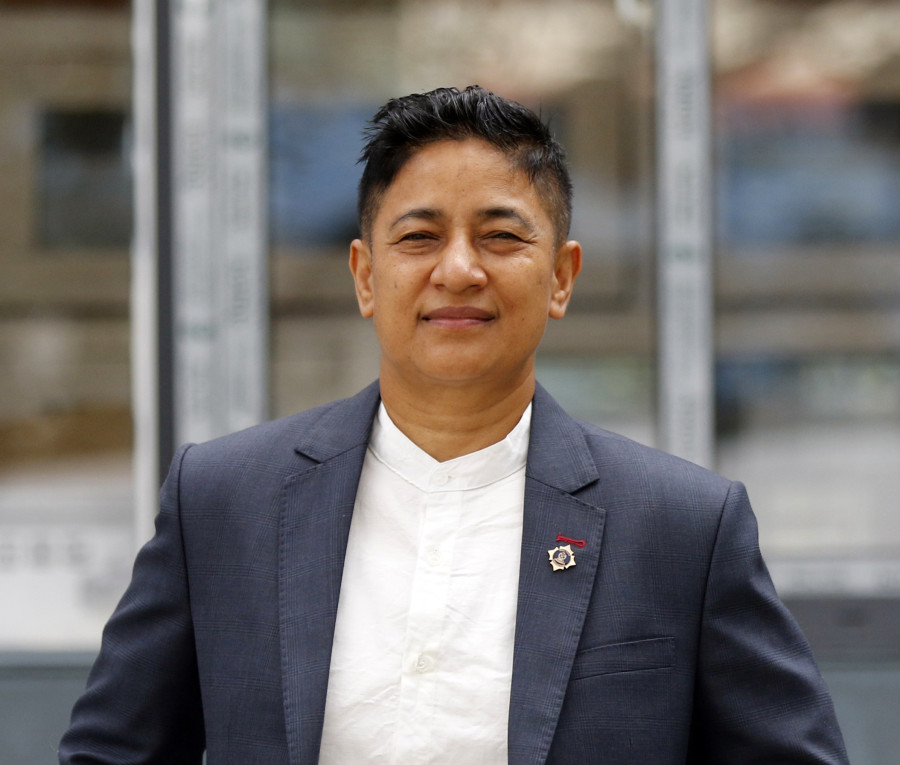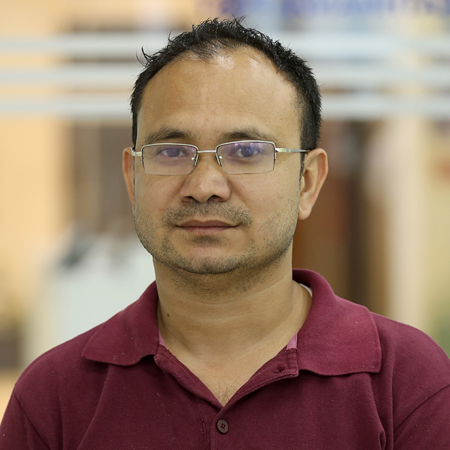Interviews
CIB probes into Lalita Niwas and gold smuggling cases are non-partisan
Additional Inspector General of Police Kiran Bajracharya, who is also the chief of the Central Investigation Bureau (CIB), which is investigating the Lalita Niwas land grab scam and 60 kg gold scam, on what transpired during the investigation.
Prithivi Man Shrestha & Anup Ojha
Investigations into the Lalita Niwas land grab scam and 60 kg gold scam have made big headlines recently. The alleged involvement of top political leaders and their apparent exemption from probing have led some to accuse the government of selective prosecution. The Post’s Prithvi Man Shrestha and Anup Ojha spoke to Additional Inspector General of Police Kiran Bajracharya, who is also the chief of the Central Investigation Bureau (CIB), which is investigating the cases, about what transpired during the investigation. Excerpts.
What were your challenges while investigating Lalita Niwas land transfer and 60kg gold smuggling cases?
The Lalita Niwas land grab case, which involved the transfer of 143 ropanies of government land to individuals at four different times, had been ongoing for five years. In this case, there was a certain legal challenge after the Kathmandu District Attorney’s Office returned the investigation report last year, citing the statute of limitation to prosecute forgery. Some of the accused had already taken a judicial stay order, barring us from arresting them. And all those arrested registered habeas corpus writs in the Supreme Court to which we had to reply.
On the gold smuggling case, we were asked to investigate on the 19th day of the seizure. Usually, it is easier to trace the culprits if we start the investigation early, so that the culprits cannot get the time to hide or destroy evidence. The Department of Revenue Investigation (DRI) asked us to investigate the case after it became clear that it was a transnational crime. Due to a late start, we had only 35 days to investigate the case. It took us around 10 days to arrest the culprits from their hideouts.
We also faced language barriers while recording statements of Chinese nationals. It took us three days to record their statements, a task that could have been over in a day if we didn't need translators. The language experts were not fully versed in the criminal terminology, and since they were civilians, they had a hard time working for 17-18 hours like police personnel. Moreover, it was a hi-tech smuggling case, which added to the challenge.
Many Chinese smugglers were also involved in three major gold smuggling scams in India in 2019, 2021 and 2022. So, their way of smuggling was very sophisticated. For instance, they had cast gold biscuits exactly the size of a motorcycle brake pad. Also, they had cut off different layers of communication to evade tracing and mostly communicated through social media chats, which complicated the investigation.
As per your investigation, Daojin Wang, a leader of the Chinese racket that smuggled 60kg of gold to Nepal, is also accused in the case of smuggling of 9kg of gold hidden in electric cigarettes. The CIB established several contacts between Daojin and Krishna Bahadur Mahara, former Speaker and Maoist Centre Vice-Chairperson. Why didn’t the CIB arrest Mahara and take his statement?
True, Daojin Wang is involved in both the smuggling cases. In 9kg gold smuggling case, there had been contacts between Daojin and Mahara, but we have not reached any conclusion about what type of calls they were and whether those calls established any collusion between Mahara and Daojin’s gang. We are investigating the matter. There were contacts between Mahara’s son, Rahul, and Daojin, and we have taken Rahul’s statement.
In the 60kg gold smuggling case, we found Rahul and Dipesh Pun (son of former Vice-President Nanda Bahadur Pun) having contacts with Dawa Tshering, a Belgian citizen of Tibetan descent, who facilitated the smuggling. Both Rahul and Dipesh had made contact with Amala Roka, wife of Dawa Tshering. Once the details of their contacts are available, we can tell more about the nature of their relations and their roles, including that of Krishna Bahadur Mahara. But since Daojin left Nepal in April, we have not found any evidence of any contact between Daojin and Mahara so far.
For now, we have investigated the cases of gold smuggled through Ready Trade Pvt Ltd. We are yet to investigate the other five firms registered by racketeers. Further investigations may unearth more details about the scale and people involved in the smuggling of gold.
The main opposition party, CPN-UML, and some Nepali Congress leaders are questioning the CIB investigation, citing its failure to arrest Maoist leaders, particularly Mahara. In fact, the UML is seeking an investigation by a high-level investigation team. What do you have to say about this?
We are aware of this demand. The CIB is not against the formation of a high-level committee. Such probe committees help find out administrative lapses, institutional weaknesses and abuse of authority. But it is not possible to prosecute anyone only on the basis of the report of the high-level probe committee. A police investigation is necessary for this. There is no truth in the accusation that the CIB conducted a partisan investigation. A certain political leader may not have been prosecuted because of a lack of adequate evidence. Our wishes do not matter as long as there is no concrete evidence.
The police found contacts between Mahara and Daojin Wang in the 9kg gold smuggling case. Why, then, did the CIB fail to seize Mahara’s phone and try to establish their relationship?
We have not yet invited Mahara to take his statement regarding the smuggling case. Neither have we seized his mobile phone. We have just started an investigation on his possible involvement, and we will seize his phone if necessary. There are technologies to restore the erased messages on mobile phones.
Besides the gold smuggling case, the CIB has faced questions over its failure to take depositions (statements of potential offenders) from former prime ministers Baburam Bhattarai and Madhav Kumar Nepal. This evidently helped them avoid prosecution. What's your comment?
The former prime ministers you named have not signed any documents that establish that they were involved in the forgery of government documents. Perhaps they misused their power, but forgery cannot be established as they have not signed any documents.
The CIB had investigated the Lalita Niwas scam for organised crime apart from forgery. The CIB could have taken the statements of the two former prime ministers but failed to. Why?
At least we have linked them to the Lalita Niwas scam by inquiring about the case. The District Attorney's Office is authorised to prosecute them even if we didn’t recommend their prosecution. The forgery of documents was carried out in an organised way. However, since the two former prime ministers did not sign any documents, we cannot recommend their names for prosecution.
You arrested several people allegedly involved in the Lalita Niwas land grab scam and investigated them for organised crime. But the Kathmandu District Attorney's Office dropped the charge of organised crime altogether. Why so?
The Kathmandu District Attorney's Office should answer this question.
Recently, Chinese nationals are increasingly involved in crimes in Nepal. Has the country become an easy place for the Chinese to carry out organised crimes?
Nepal is China’s neighbouring country. It is also very easy to get a business visa here. The Chinese are provided with business visas without confirming whether they have opened any company here. They are using such loopholes to stay here and commit crimes. Some of the Chinese gold smugglers even got Nepali citizenship, while others got business visas. Daojin Wang had also stayed here on a business visa.




 22.64°C Kathmandu
22.64°C Kathmandu
.jpg)












